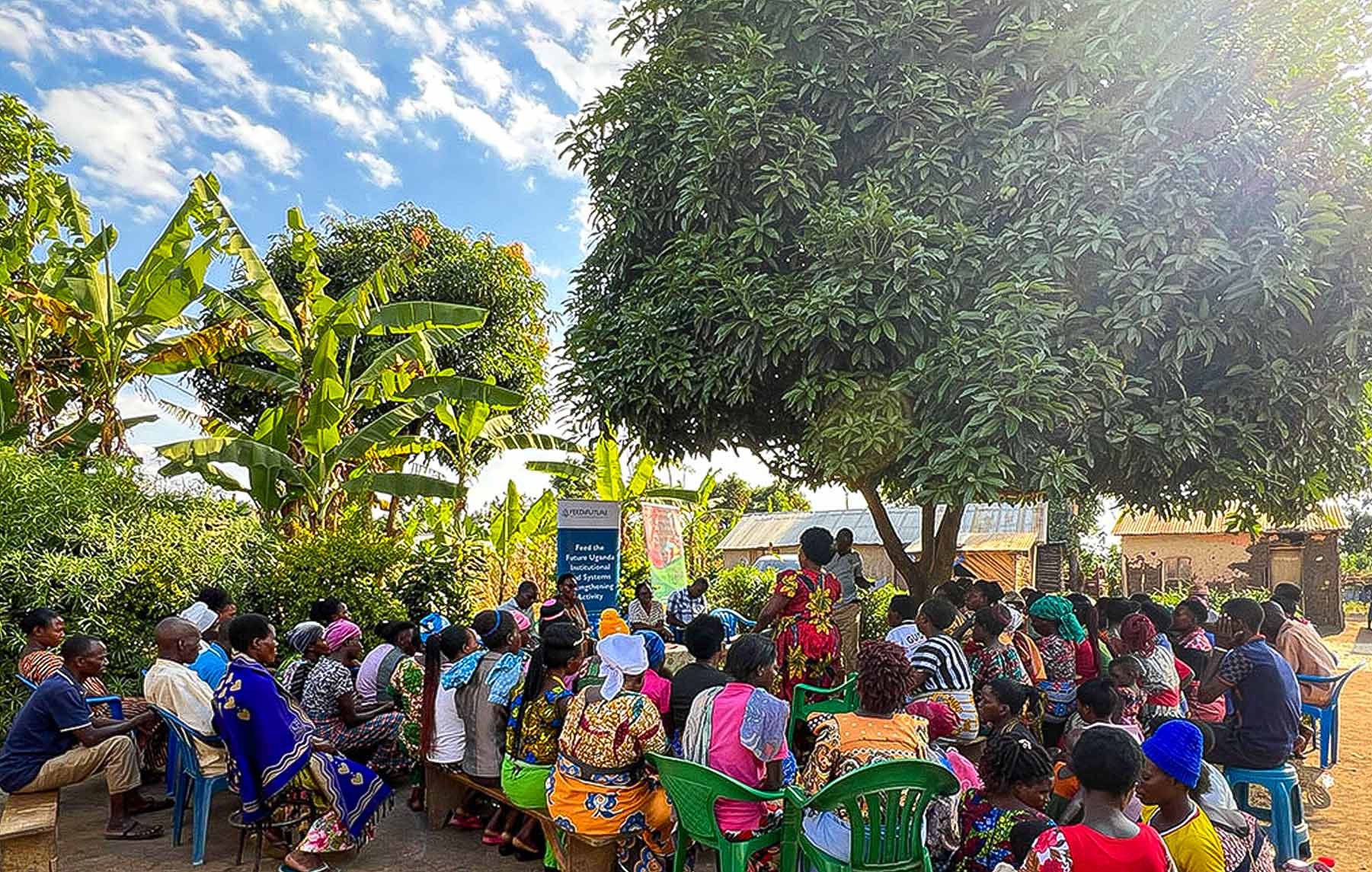
On June 25, 2024, a crucial community awareness session was held in Kibalinga sub county, Lusalira, Mubende district, to address the pressing issue of aflatoxin contamination. Food Rights Alliance (FRA), Kazo Farmers Association supported by Feed the Future ISS Activity collaborated to organize the event, which drew 74 participants, including 16 men and 58 women.
The session aimed to educate the community about the devastating effects of aflatoxin on food security, health, trade, and livelihoods. Participants shared their personal experiences and knowledge about aflatoxin, highlighting the need for proper storage and handling practices and collaborative efforts among stakeholders.
During his Welcome remarks, Aloysius Tumwijukye, Executive Director of Kazo Farmers Association, expressed gratitude to the Feed the Future ISS Activity and Food Rights Alliance for selecting Mubende for the Community Awareness session on Aflatoxin control and Management. He acknowledged the significance of aflatoxin contamination in Uganda, particularly in maize production, which is a critical crop for food security in the country. He highlighted that Mubende is the largest maize grower in the Buganda region and that they have formed a maize value chain to enhance standards.
Kiiza Kizito, the Private Sector Engagement Manager from Feed the Future ISS Activity, introduced the concept of aflatoxin and its effects, highlighting that it causes cancer in grains, especially in maize and groundnuts. He emphasized that ISS Activity collaborates with various partners to empower communities in tackling critical issues within the food system, including the pervasive problem of aflatoxin contamination.
Pauline Akol, the Feed the Future ISS Activity Grants Officer highlighted a concerning trend in schools where aflatoxin levels are often high due to poor handling and storage of maize flour. In many schools, maize flour is stored in inadequate facilities, exposing it to moisture, heat, and pests, which can lead to the growth of aflatoxin-producing moulds. This puts the health of school children at risk as aflatoxin can cause a range of serious health problems, including liver damage, immune system suppression and stunted growth. “Proper storage and handling practices are essential to prevent aflatoxin contamination in schools and ensure the safety of children’s food,” she added.
Agnes Kirabo, Executive Director of Food Rights Alliance, thanked the women for their dedication to the session and their willingness to work together as a group. She encouraged members to share their understanding of aflatoxin, and some shared their insights and experiences. She emphasized the critical points about aflatoxin, highlighting its status as a known carcinogen, particularly in groundnuts, and its heat resistance.
The discussion identified key opportunities to enhance access to information, including harnessing collaborative efforts, leveraging radio programs, and fostering a collective approach to address aflatoxin contamination. Participants proposed ideas for further action, including organizing bigger awareness sessions, involving other actors like traders and food vendors, and engaging district local leaders.
This session marked a turning point for the community, empowering them to take action against aflatoxin. Key actions and recommendations emerged, including conducting continuous awareness creation sessions and developing IEC materials, identifying and engaging other actors working on related issues, developing a community-led roadmap to address aflatoxin contamination, utilizing community radios to raise awareness and educate communities, supporting schools in addressing aflatoxin issues, capacitating village champions, and supporting farmers to register their cooperative.
With collective knowledge and resources, the community of Mubende is determined to transform harmful food handling practices and secure a healthier future. This marks the beginning of a journey towards a healthier and more prosperous future for all. By working together, the community can combat aflatoxin contamination and ensure a safer, healthier future for generations to come.
For More Details please contact the Secretariat.
By Lucky Brian Wamboka
Head of Program quality and Partnerships
